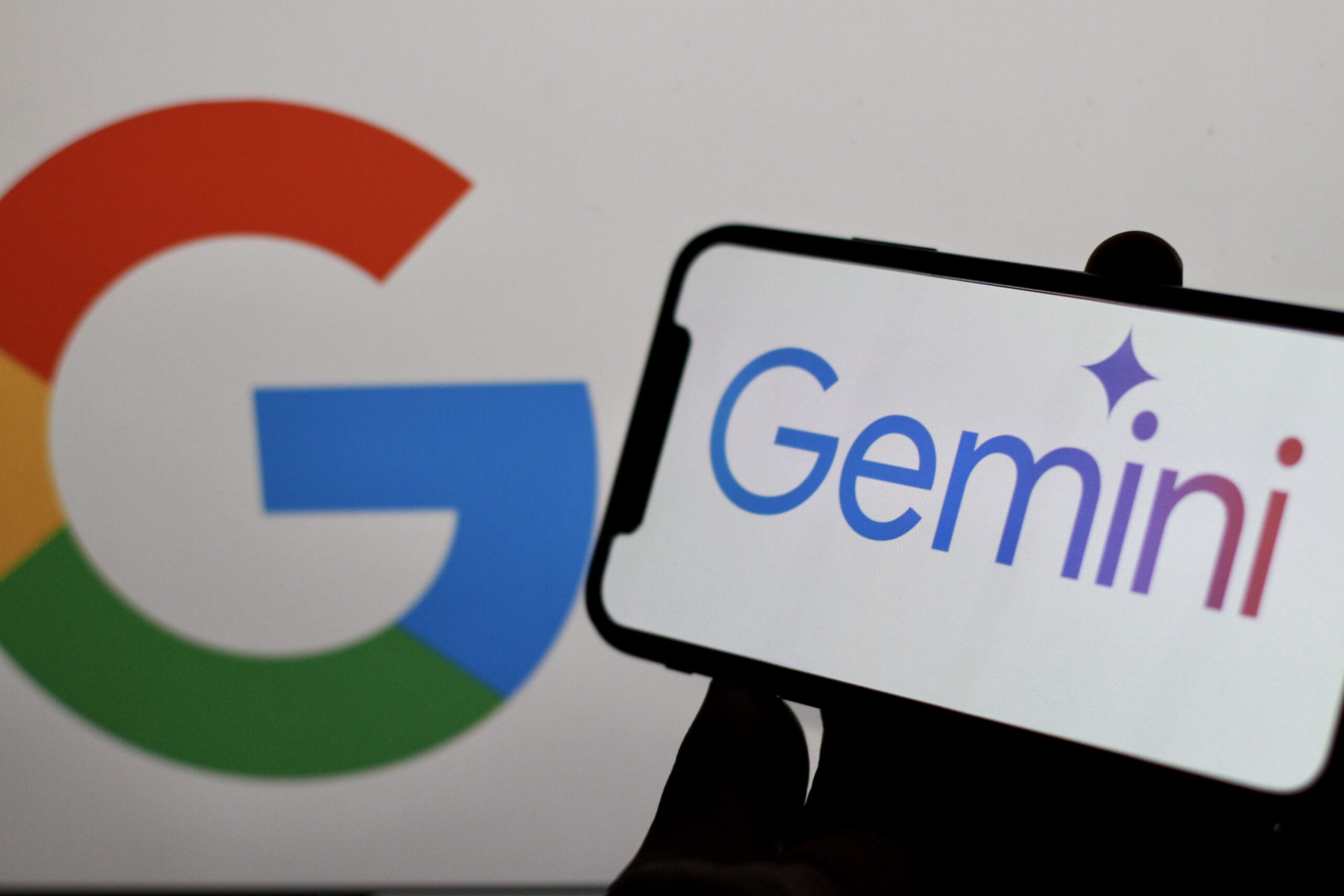As you navigate the ever-evolving landscape of artificial intelligence, prepare to witness a groundbreaking leap forward. Google has unveiled Gemini 2.0, a revolutionary AI model that promises to redefine the boundaries of autonomous problem-solving. This latest iteration represents a significant departure from its predecessor, shifting focus from multimodality to advanced, independent task execution. With features like “Deep Research” and the ability to handle complex, multi-step queries, Gemini 2.0 is poised to transform how you interact with AI systems. In this article, we’ll explore the cutting-edge capabilities of Gemini 2.0 and its potential impact on various Google services, offering you a glimpse into the future of AI technology.
Introducing Google’s Gemini 2.0: The Next Generation of Autonomous AI

Google’s latest AI model, Gemini 2.0, represents a significant leap forward in autonomous problem-solving capabilities. This cutting-edge system builds upon its predecessor’s multimodal strengths while introducing revolutionary features designed to minimize human intervention in complex tasks.
Deep Research Within Gemini 2.0: Elevating AI-Driven Information Synthesis
At the heart of Gemini 2.0 lies its groundbreaking “Deep Research” functionality. This feature empowers the AI to independently gather, analyze, and synthesize information from across the web, producing comprehensive reports that rival human research methods. By mimicking the nuanced approach of expert researchers, Gemini 2.0 can tackle intricate, multi-step queries with unprecedented accuracy and depth.
Enhancing User Experience Across Google’s Ecosystem with Gemini 2.0
The introduction of Gemini 2.0 promises to revolutionize various Google products and services. Users can expect significant improvements to the AI Overviews feature in Google Search, enabling more nuanced and context-aware responses to complex queries. Additionally, the integration of Gemini 2.0 into Chrome, Google Maps, and YouTube over the coming year suggests a future where AI assistance becomes seamlessly woven into our daily digital interactions.
Project Astra and Project Mariner: Pushing the Boundaries of AI Autonomy
Google’s ambitious “Project Astra” and “Project Mariner” initiatives further showcase the company’s commitment to advancing AI autonomy. These projects aim to develop AI assistants capable of real-time, context-aware responses and autonomous web navigation, respectively. Such advancements could potentially transform tasks like online shopping, making them more efficient and user-friendly than ever before.
Gemini 2.0 “Deep Research” Capability: Revolutionizing Information Synthesis
Mimicking Human Research Methods
Gemini 2.0’s “Deep Research” feature represents a significant leap forward in AI-driven information gathering and synthesis. This groundbreaking capability allows the AI to scour the web, collecting and analyzing vast amounts of data with a level of comprehension previously unseen in AI models. By emulating human research techniques, Gemini 2.0 can delve into complex topics, cross-reference multiple sources, and produce comprehensive reports that rival those created by human experts.
Enhancing Complex Query Handling with Gemini 2.0
One of the most impressive aspects of Gemini 2.0’s Deep Research is its ability to tackle intricate, multi-step queries. This feature enables the AI to break down complex questions into smaller, manageable components, systematically addressing each part to build a cohesive response. Whether dealing with text-based inquiries or those involving visual elements, Gemini 2.0 demonstrates remarkable versatility in its problem-solving approach.
Gemini 2.0 Revolutionizing AI Overviews in Google Search
The integration of Deep Research into Google Search’s AI Overviews feature marks a significant enhancement in user experience. By leveraging Gemini 2.0’s advanced capabilities, search results now offer more nuanced, context-rich summaries on complex topics. This improvement allows users to quickly grasp the essence of multifaceted subjects, saving time and providing more accurate, up-to-date information.
Project Astra: Integrating Gemini 2.0 for Context-Aware, Real-Time Assistance
Google’s “Project Astra” represents a significant leap forward in AI-powered assistance, leveraging the advanced capabilities of Gemini 2.0 to provide users with real-time, context-aware responses. This innovative AI assistant seamlessly integrates multiple Google services, including Search, Lens, and Maps, to deliver a comprehensive and intuitive user experience.
Unified Service Integration
Project Astra’s strength lies in its ability to draw information from various Google platforms simultaneously. By combining data from Search, visual recognition through Lens, and location-based services via Maps, the AI can offer nuanced, situationally relevant assistance. This unified approach allows users to receive holistic answers to complex queries without navigating multiple apps or services.
Contextual Understanding and Personalization
One of Project Astra’s key features is its advanced contextual understanding. The AI assistant can interpret user queries about their current location, search history, and even visual input from their surroundings. This contextual awareness enables Astra to provide highly personalized responses, anticipating user needs and offering tailored suggestions.
Real-Time Processing and Response
Powered by Gemini 2.0’s enhanced processing capabilities, Project Astra can analyze and respond to user inputs in real-time. This rapid response time, coupled with the AI’s ability to handle multi-step queries involving both text and images, positions Astra as a powerful tool for on-the-go problem-solving and information retrieval.
By integrating Gemini 2.0’s advanced AI capabilities with Google’s extensive service ecosystem, Project Astra aims to redefine the landscape of digital assistance, offering users a more intuitive, efficient, and personalized interaction with technology.
Project Mariner: Developing Autonomous Web Navigation and Interaction
Revolutionizing Online Tasks
Project Mariner represents a groundbreaking initiative in AI development, focusing on creating an artificial intelligence capable of autonomously navigating and interacting with the web. This ambitious project aims to simulate human-like behavior online, potentially transforming how we engage with digital platforms.
At its core, Project Mariner seeks to develop an AI that can perform complex online tasks with minimal human intervention. Imagine an AI assistant that can effortlessly browse websites, fill out forms, and even complete online purchases – all while adhering to user preferences and security protocols.
Supervised Autonomy
While the goal is autonomous operation, Project Mariner incorporates a crucial element of user supervision. This approach ensures that the AI remains aligned with user intentions and ethical guidelines. You’ll have the ability to oversee the AI’s actions, providing a safety net for critical decisions or sensitive transactions.
The supervised autonomy model strikes a balance between convenience and control. It allows you to delegate time-consuming online tasks to the AI while maintaining the final say on important matters. This feature is particularly valuable for tasks like:
Comparing prices across multiple e-commerce sites
Booking travel arrangements
Researching and compiling information from various sources
Implications for the Future
Project Mariner’s development signals a significant leap forward in AI capabilities. As this technology matures, it could reshape how we interact with the digital world, potentially saving time and reducing the cognitive load associated with online activities. However, it also raises important questions about privacy, security, and the evolving relationship between humans and AI in our daily lives.
Navigating Regulatory Challenges: Google’s Commitment to Advancing AI Technologies
As Google unveils Gemini 2.0, the tech giant faces a complex landscape of regulatory scrutiny. Despite these hurdles, the company remains steadfast in its pursuit of AI innovation.
Regulatory Headwinds
Google’s AI advancements come amid heightened regulatory attention. The U.S. Justice Department’s antitrust lawsuit, alleging monopolistic practices, looms large over the company’s operations. This legal challenge could potentially lead to a breakup of the tech behemoth, casting a shadow on its integrated AI strategy.
Unwavering Innovation
Despite these obstacles, Google’s resolve to push the boundaries of AI technology remains unshaken. CEO Sundar Pichai has expressed confidence in the company’s ability to navigate these regulatory challenges while continuing to advance its AI capabilities. This determination underscores Google’s long-term vision for AI-driven solutions.
Balancing Act
Google’s approach to AI development now involves a delicate balance between innovation and regulatory compliance. The company is likely to:
Enhance transparency in AI algorithms and decision-making processes
Strengthen data privacy measures
Collaborate with policymakers to shape responsible AI guidelines
By addressing these concerns proactively, Google aims to build trust while forging ahead with groundbreaking AI technologies like Gemini 2.0.
In Summary
As you’ve seen, Google’s unveiling of Gemini 2.0 represents a significant leap forward in AI technology. This advanced model’s autonomous problem-solving capabilities and innovative features like Deep Research and Project Astra promise to revolutionize how you interact with AI in your daily life. By integrating Gemini 2.0 across its product ecosystem, Google is poised to enhance your digital experiences in unprecedented ways. While regulatory challenges loom, the company’s commitment to pushing AI boundaries remains unwavering. As this technology continues to evolve, you can expect to see profound changes in how you search, shop, and navigate the digital world. Gemini 2.0 is not just an upgrade; it’s a glimpse into the future of AI-human interaction.
More Stories
ASUS AiCloud Bug Exposes Home Networks to Remote Attacks
Are you aware that your home network could be at risk? A recently discovered vulnerability in ASUS AiCloud-enabled routers has sent shockwaves through the cybersecurity community. This critical flaw, identified as CVE-2025-2492, exposes your network to potential remote attacks, allowing unauthorized access to your devices.
Samsung SmartThings Evolves: AI-Powered Automation and Ambient Sensing Redefine the Smart Home Experience
Samsung SmartThings redefines your connected living experience. With the introduction of AI-powered automation and ambient sensing capabilities, SmartThings is elevating home management to unprecedented levels of sophistication and convenience.
QpiAI-Indus: India’s Quantum Leap with a 25-Qubit Superconducting Computer
QpiAI, a Bengaluru-based startup, has unveiled the QpiAI-Indus, India’s first full-stack superconducting quantum computer. This 25-qubit system represents a quantum leap for the nation’s scientific capabilities, integrating cutting-edge hardware with sophisticated software solutions.
Opera Mini Empowers 100M Users with Free AI Assistant, Bridging the Digital Divide
Notably, the company integrated the AI assistant Aria into Opera Mini. Now, users gain advanced artificial intelligence access—no matter their location or internet quality. This strategic move empowers more than 100 million users globally. Particularly, it helps people in areas where high data costs previously limited online participation.
Alibaba’s Taobao Surges in Popularity in US as Trump Tariffs Boost Chinese Shopping Apps
As you navigate the ever-changing landscape of global commerce, a surprising trend has emerged in the wake of recent U.S. tariff increases on Chinese goods. Contrary to expectations, these measures have not deterred American consumers from purchasing Chinese products.
Alibaba Cloud Unveils Advanced AI Models and Tools to Empower Global Developers
At the 2025 Spring Launch, the tech giant unveiled a suite of advanced AI models and tools designed to empower global developers like you. From the large-scale Qwen-Max to the reasoning-focused QwQ-Plus, these cutting-edge models are now at your fingertips through Alibaba Cloud’s Model Studio.


